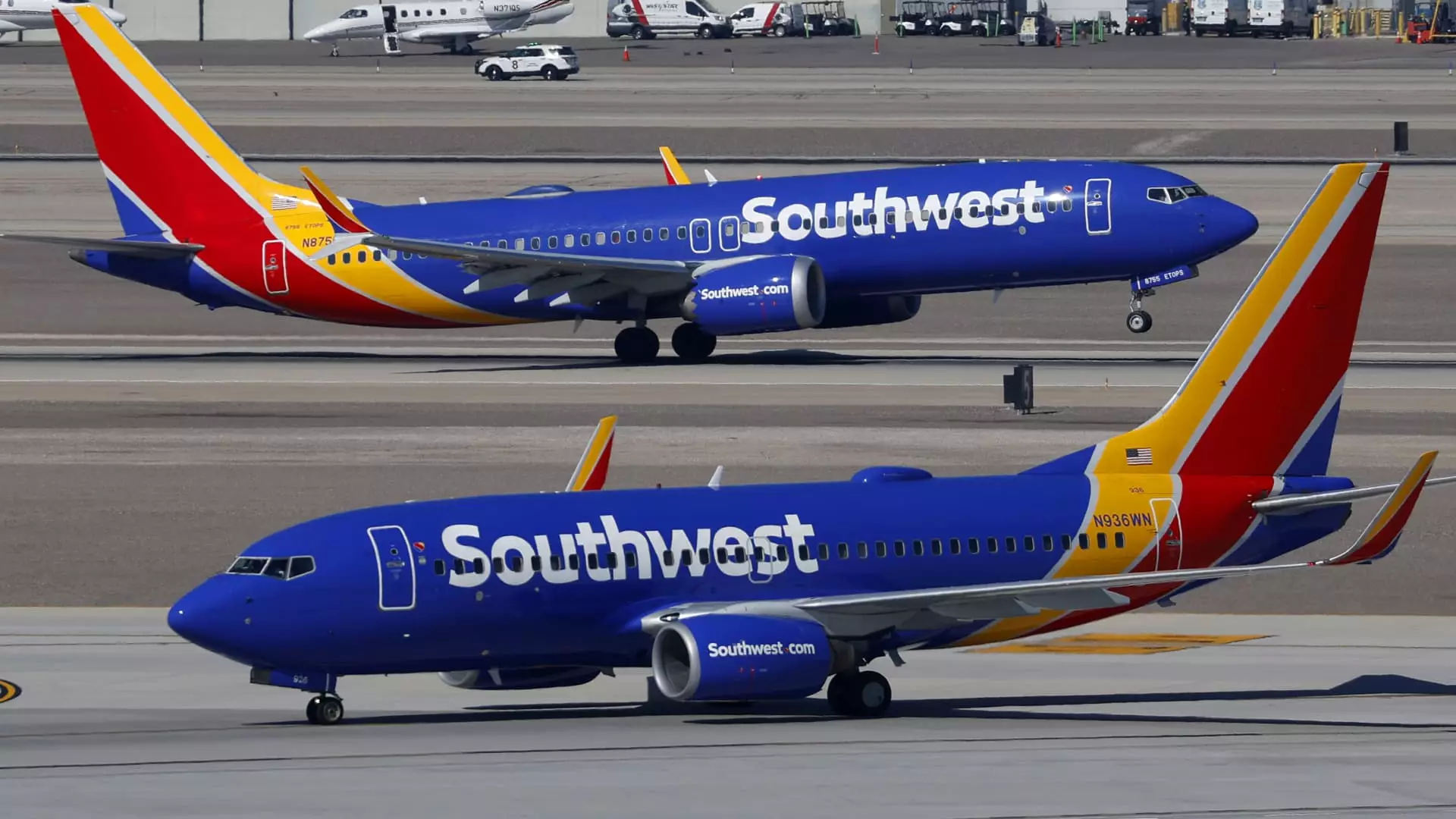Southwest Airlines is sounding the alarm, announcing significant cuts to its capacity in the latter half of the year. This decision comes on the heels of alarming trends indicating a decrease in domestic bookings. As the airline reveals expectations for unit revenue to fall by as much as 4% compared to last year, the implications are clear: we are witnessing the onset of a troubling period for one of America’s favorite carriers. The reluctance to reaffirm long-term earnings guidance for 2025 and 2026 speaks volumes about the precariousness of the situation. In the face of such uncertainty, one must question how resilient the airline truly is amidst shifting consumer behaviors and an unpredictable economy.
Major Rivals Signal Trouble
The news gets even gloomier when considering the broader landscape within the airline industry. Allegations of inept forecasting are rife following similar announcements from industry stalwarts like United Airlines and Delta Air Lines, both of which have opted to restrain their domestic capacity as well. Delta’s retreat from its full-year forecast underscores the deepening crisis, while United describes the U.S. economy as an “impossible” puzzle to solve. All this begs a significant question: if seasoned players are curtailing operations, can Southwest realistically weather the forthcoming storms, or is it merely delaying the inevitable?
Alarming Financial Figures
The financial indicators paint a worrisome picture as well. Southwest, while it did manage to exceed analysts’ expectations in the first quarter regarding earnings and revenue, posted a net loss of $149 million—an improvement but still indicative of a failing model. Yes, revenue was up by 1.6% year-over-year, but is this really something to celebrate in an industry as competitive and volatile as aviation? With adjusted losses reflecting 13 cents per share, these figures are a siren call for concern rather than cause for celebration.
Radical Shifts in Strategy
In a bid to revitalize and reshape its nearly 50-year-old business model, Southwest is rolling out drastic changes that could alienate loyal customers. The transition from a beloved open-seating format to assigned seats represents more than mere logistical adjustments; it signifies a departure from the brand’s core identity. Not to mention, the introduction of restrictive economy tickets and imminent fees for luggage—once a hallmark of its customer-friendly approach—further dilute its unique selling propositions. One has to wonder whether these decisions, influenced by activist investors like Elliott Investment Management, cater to the short-term at the expense of long-term loyalty and brand integrity.
The Ticking Clock for Leadership
As the shadow of uncertainty looms large, Southwest’s leadership will soon face skeptics during an upcoming analysts’ call. The mounting pressure from stakeholders is palpable, and this transparent scrutiny may expose fractures in their business strategy. While CEO Bob Jordan touts recent initiatives as successful, the reality is that flying amid turbulent economic winds demands more than just superficial green shoots. Bold initiatives and radical restructuring will need to be grounded in sustainable profitability if Southwest hopes to rise above the challenges ahead, instead of crashing under the weight of them.
Navigating these tumultuous skies will require not only efficient management but also a clear focus on customer loyalty—something that is becoming increasingly difficult to differentiate in a commoditized marketplace.

